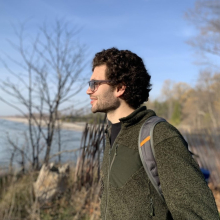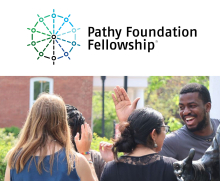Dear members of the McGill community,
On October 13, the Government of Quebec announced plans to change the funding model related to university tuition. While we begin to assess the implications of the news, I want to provide some initial perspective.
What the Quebec Government announced:
- Tuition fees for Canadian students from outside of Quebec would increase from $8,992 to around $17,000. Current students would have five years to complete their program of study under the existing tuition structure.
- The funding model for universities regarding international students would change, with the Government clawing back more money from tuition fees than is currently the case.
- These two changes would apply to undergraduate programs and non-research and professional master’s programs.
- Much of the tuition that students pay to McGill would be returned to the Government and reallocated to francophone universities in Quebec, but the University would receive government grants to partially support the cost of teaching.
- The tuition changes would apply to students beginning their studies in fall 2024.
Impacts on McGill and next steps:
These measures, if implemented, would have serious consequences. I have mobilized the senior administration, Board members and teams across the University to demonstrate the concrete negative effects these measures would have on McGill, on the higher education sector, and on the whole of Quebec society. Our focus is to work with government and our partners to reverse these impacts.
More information is needed before we can confirm the financial effects these measures would have on McGill. In the meantime, I ask those responsible for spending to be prudent, while continuing to be ambitious in advancing the University’s mission.
It goes without saying that these measures could affect the recruitment of prospective Canadian students from outside Quebec, as it will cost less to study elsewhere in Canada for many programs. Although McGill distinguished itself again last week as Canada’s top Medical Doctoral university, a near-doubling of tuition will make many think twice about their academic choices in fall 2024 and beyond.
The make-up of McGill’s student body is unique in Canada. Half of our students are from Quebec, 30 percent are international students, and the remaining 20 percent come from the rest of Canada. This diversity of origin and perspectives is part of McGill’s unique character – its DNA. We must protect this richness of community.
These measures threaten the University’s capacity to be a positive force for our home. Quebec boasts 19 distinguished universities, each playing a distinct role to meet the diverse needs of our population.
We need to ensure everyone realizes the incredible contributions that McGill makes, not just to Montreal but throughout every region of Quebec. And among McGill’s strongest assets is its tremendous power to attract and retain the highly skilled people who contribute so significantly to Quebec’s economy and society.
The power of an open Quebec society:
We are concerned that, in the government’s announcement, prospective students from outside Quebec may hear the message that they are not welcome – despite Montreal’s reputation as a global education destination, and the extraordinary contributions of students and alumni within Quebec.
We are stronger when our doors are open – when we attract the brightest minds from Canada and the world, enticing and equipping them to build fulfilling, productive lives here. They have so much to share with Montreal and Quebec.
And likewise, we Quebecers have so much to share with them: the cultural richness of la métropole; the strength of Quebec innovation and identity; the power of our made-in-Quebec ideas. When we close our doors, we compromise not only our values, but our future.
McGillians care deeply about their University, and I know that this announcement is concerning for many of us. We will engage government and partners to address these proposals, seeking ways to strengthen all universities for the good of Quebec.
Sincerely,
Deep Saini
Principal and Vice-Chancellor
McGill University











